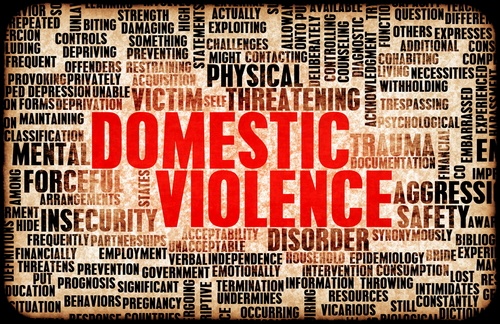As we recently discussed, we have seen a sharp rise in allegations of domestic violence during the COVID-19 pandemic. In Pennsylvania and other states around the country, media outlets are reporting that the amount of additional time couples are spending together at home – combined with the financial strain many couples are facing as a result of one or both spouses being out of work – is a key factor in the increase in domestic violence cases during the pandemic.
While domestic violence is a serious matter, it is also widely understood that a significant percentage of domestic violence allegations are false. Whether resulting from an unclear understanding of the law or an attempt to get someone in trouble, false allegations of domestic violence, unfortunately, are not that uncommon. There are several other factors that can call domestic violence charges into question as well; and, for individuals who have been arrested, working with an experienced criminal attorney to build a sound defense is crucial to avoid unnecessary consequences.
What are Defenses to Domestic Violence in Pennsylvania?
As with all crimes, the defenses that can be used to fight charges of domestic violence depend on the specific facts involved in each particular case. Keeping this in mind, some potential defenses to domestic violence charges in Pennsylvania include the following:
1. The Allegations Against You are False
Again, many domestic violence arrests result from false allegations. When the police respond to a report of domestic violence, in most cases, they have an obligation to make an arrest in order to protect the claimed victim. This sets off a whole sequence of events, and it can quickly seem as though you are being treated as guilty until proven innocent.
How do you prove that domestic violence allegations are false? Depending on the circumstances, there are a number of different possibilities. Witnesses may be able to testify as to what really happened, you may be able to present an alibi, or the claimed victim may even admit to fabricating his or her accusations in a text message or on social media. When you hire a Philadelphia criminal defense lawyer to represent you, your lawyer will examine all potential sources of evidence in order to determine if it is possible to disprove the allegations against you.
2. You Acted in Self-Defense or in Defense of a Family Member
Acting in self-defense or in defense of a family member is a defense to domestic violence in Pennsylvania. These are what are known as “justification” defenses, which means that you can be found not-guilty even if you did in fact physically attack a family or household member. If you acted to save yourself or someone else (i.e. a child) who was at risk for suffering serious or fatal injuries as a result of abuse, then you are not guilty of a crime under Pennsylvania law. These defenses frequently apply in domestic violence cases, and your attorney can determine if they are available under the facts of your particular case.
3. You Did Not Commit “Abuse” as Defined By Pennsylvania Law
Pennsylvania’s domestic violence statute uses the term “abuse” to describe the types of conduct that can lead to criminal charges. Examples include:
- “Attempting to cause . . . bodily injury.”
- “[I]ntentionally, knowingly or recklessly causing bodily injury.”
- “Placing another in reasonable fear of imminent serious bodily injury.”
- “The infliction of false imprisonment.”
- “Knowingly engaging in a course of conduct . . . under circumstances which place the [victim] in reasonable fear of bodily injury.”
In order to convict you, the prosecutor’s office must be able to prove that you committed one of the above forms of abuse. If you accidentally hurt a member of your family or household, then you are not guilty of “intentionally, knowingly, or recklessly causing bodily injury.” If the claimed victim’s fear of imminent serious bodily injury was unreasonable, then you did not commit a crime. These are just two examples of the many factual issues that can justify a not-guilty verdict at trial.
4. The Alleged Victim is Not a “Family or Household Member”
Pennsylvania’s domestic violence statute only applies in cases involving crimes committed against “family or household members.” This exclusively includes:
“Spouses or persons who have been spouses, persons living as spouses or who lived as spouses, parents and children, other persons related by consanguinity or affinity, current or former sexual or intimate partners or persons who share biological parenthood.”
If the person accusing you of domestic violence does not actually live with you or is not a biological family member or “sexual or intimate” partner, then you might not be guilty of domestic violence. However, you could still potentially face prosecution for ordinary assault or another violent crime, so it will be important for you to carefully assess your options with the help of an experienced Philadelphia criminal defense attorney.
5. The Police Violated Your Constitutional Rights
While there are special rules that apply when the police respond to a report of domestic violence, the police still have a duty to observe alleged assailants’ constitutional rights. If the police violate your constitutional rights (i.e. by arresting you without probable cause or interrogating you in custody without reading the Miranda warning), then this can provide a defense in your domestic violence case.
When reviewing your case, your attorney will be able to determine if you have grounds to file a motion to suppress the prosecution’s evidence against you. If so, and if the motion is successful, then this may prevent the prosecutor’s office from being able to prove your guilt beyond a reasonable doubt.
Discuss Your Domestic Violence Case with Philadelphia Criminal Defense Lawyer Brian Fishman
If you are facing a domestic violence charge in Pennsylvania, it is important that you speak with an attorney about your case immediately. To schedule a free and confidential consultation with Philadelphia criminal defense lawyer Brian Fishman as soon as possible, call 267-758-2228 or tell us how we can reach you online now.






